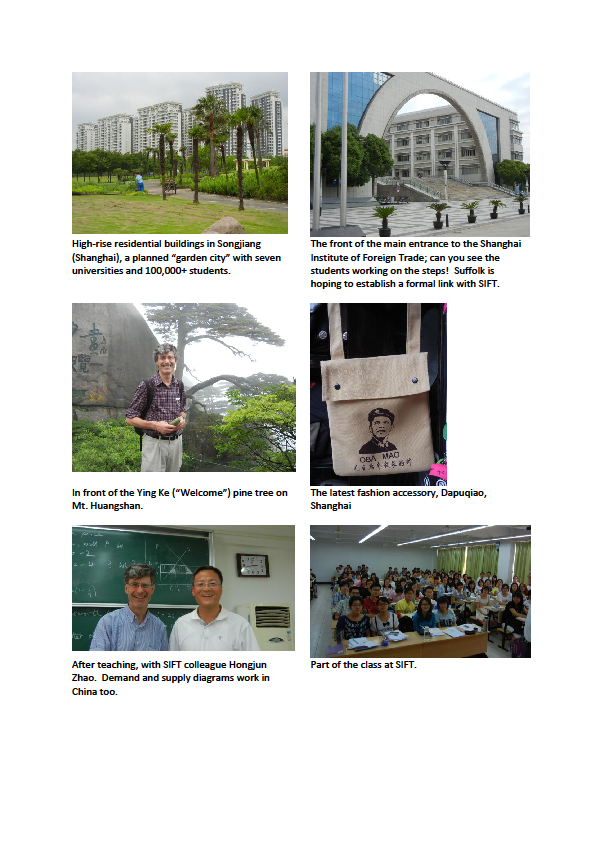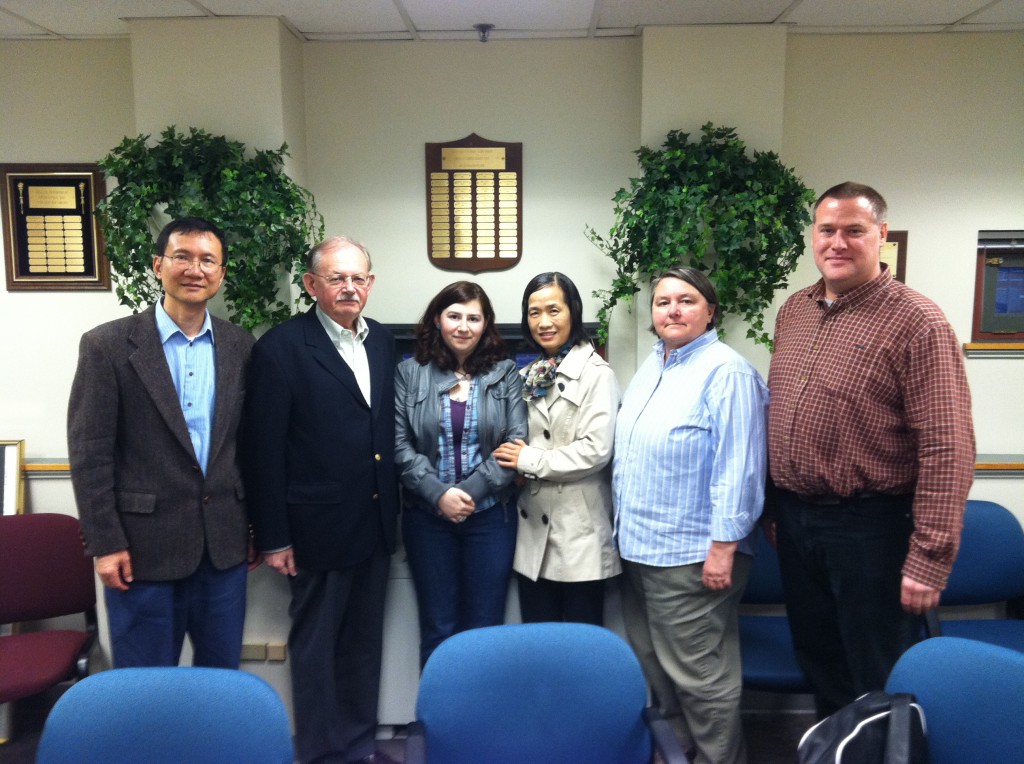In January 2012 I was privileged to attend the monthly meeting of the Royal Asiatic Society China in Shanghai. This is the newly adopted name of the revived society which from 1858 to 1952 was known as the North China Branch of the Royal Asiatic Society. Since the earliest westerners first congregated in China in the southern city of Canton, the port of Shanghai that developed in the mid-1800s seemed far to the north, though in fact it was on the central east coast of China. In 1857 westerners were not allowed to live in Beijing, still farther to the north. The RAS’ current name has a modern sound to it and will allow RAS branches to be set up in many cities in China as circumstances allow.
I was kindly escorted to the meeting by Peter Hibbard, MBE, recent past-president who has played the key role in revitalizing the RAS in Shanghai in 2007. He has lived in Shanghai since the early 1990s and has just turned the gavel over to the new president Katy Gow, who now lives in Shanghai with her distinguished husband, Professor Ian Gow PhD OBE. Peter and Katy thoughtfully gave me a copy of the Journal of the Royal Asiatic Society China in Shanghai, Vol. 74, No.1 April 2010, with assurances that a new issue will appear shortly. The Journal had ceased publication in 1948. I also met Lindsay Shen PhD, the journal’s editor, who has an informative article in the issue mentioned here.
The original NCBRAS was part of the British colonial establishment in Shanghai’s pre-war years. It had its own building, a tall brick structure with its name in Chinese, yazhou wenhui 亞州文會 above the entrance. It is behind the Peninsula Shanghai hotel on the Bund, on Huqiu Road 虎丘路 (just off East Beijing Road 北京東路) , and is currently being used as a museum of modern art. At one time the original NCBRAS had a museum collection and a library of around 40,000 volumes. The carefully preserved collection now forms part of the Xujiahui Bibliotheca, a branch of the Shanghai Library that was opened to the public in 2004 and many of the museum exhibits are on display at the Shanghai Natural History Museum. The RAS has been unsuccessful in its efforts to gain a presence in its old building. But the RAS is re-building its library collection, which now has 1,000 volumes including an almost complete run of its former journal from 1859 to 1948.
Our meeting was held in the Radisson Xing Guo Plaza Hotel. The hotel occupies the former estate of the Swire family (of the original Butterfield and Swire) that began business in Shanghai in 1866 and is located in the former International Settlement. At the January meeting an audience of over 80 persons gathered to hear an illustrated talk about western tourism to North Korea. By Chinese government regulations Chinese citizens are not allowed to become members of the RAS, though they can and do participate in all of its activities.
As is true for the Asiatic Society of Japan, the RAS in Shanghai persevered through many political and economic changes. It was and is being carried forward by its committed members who value the goals of Society and want to see it continue. In Shanghai it was a great pleasure to meet the intellectually stimulating officers of the RAS and a number of its members. One can find their newsletter online (069_20120201 RAS FEBRUARY NEWSLETTER), and in the February 2012 issue they kindly included a photo of me enjoying the lively lecture.
The Journal is accepting submissions and anyone interested can find guidelines on the RAS website
Ronald Suleski
January 2012, Boston





